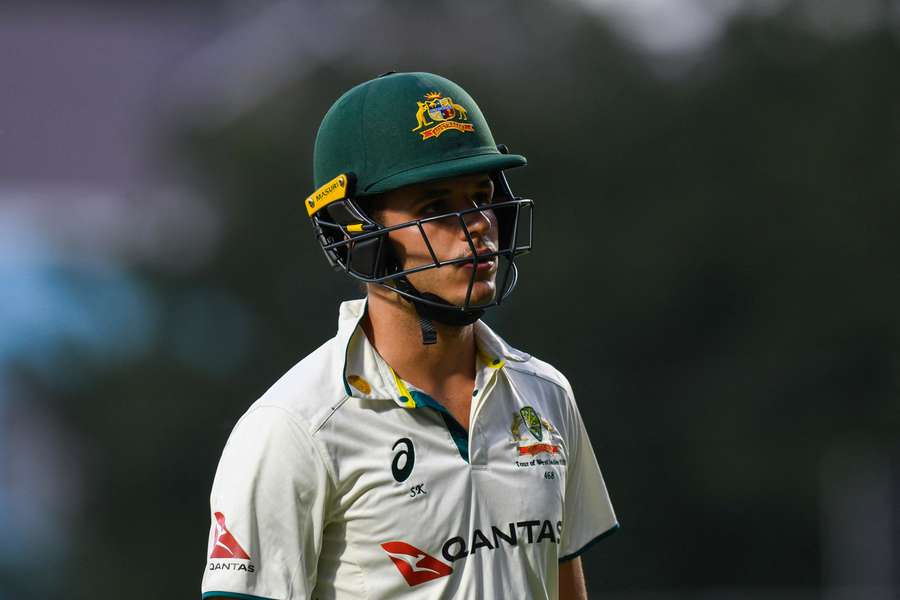In what follows, we take a closer look at the 10 leading candidates for the opening berths - including the incumbents, some rising stars, as well as recently and not-so-recently discarded players who could force their way back into contention.
With England hitting form and building a formidable pace attack, the debate over who should open for Australia hasn't been so lively since... well, since this time last year.
The incumbents
Usman Khawaja
Despite his ongoing lean run, it’s pretty hard to imagine 38-year-old Khawaja not playing the first Ashes Test (unless he retires), given the experience he brings to the problematic job of opening for Australia.
Even though he has struggled of late, he has enough credit in the bank to be retained for the start of the series at least. However, if he continues to look out of sorts and things go poorly for Australia in the first couple of Tests, it’s conceivable that he is dropped for a younger model during the series.
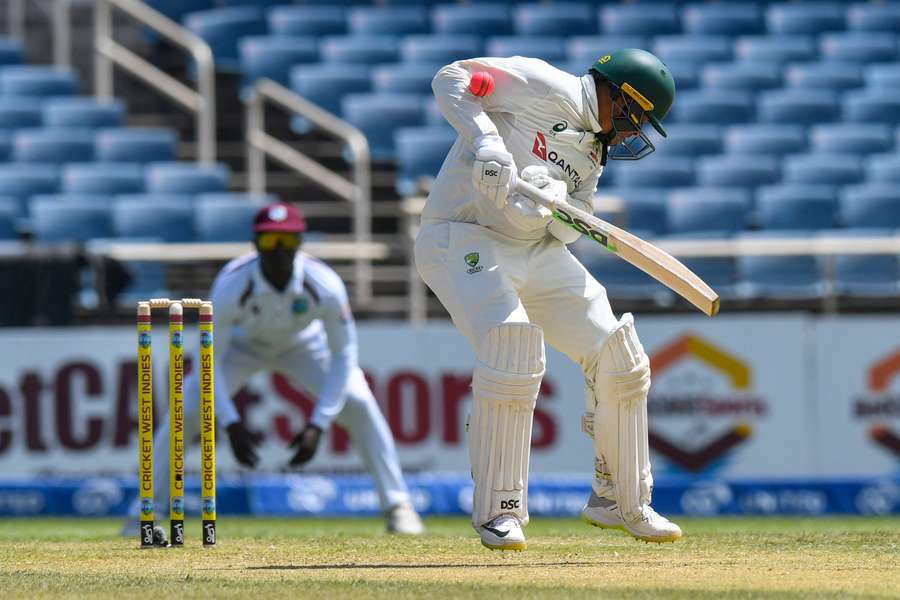
In 2024 and ’25 combined, Khawaja has averaged just a tick over 30 for Australia with only one ton - his mammoth 232 against Sri Lanka, which pads his stats massively. If you take that effort out, he’s averaged just over 21 in that year and a half.
Sam Konstas
Besides Khawaja at the top of the order during the recent tour of the West Indies was Sam Konstas. After truly bursting onto the scene last summer, with a captivating knock at the MCG, it’s been a steady, and slightly unlucky, decline from those heady heights for the 19-year-old.
First, he was left out of the side for the Tests in Sri Lanka, with Travis Head moving up to open. Then, he was overlooked for the World Test Championship final in favour of retaining Marnus Labuschagne in the side.
The Caribbean presented his big opportunity. However, he struggled across the three matches, albeit in very tough conditions. His scores of three, five, 25, zero, 17 and zero (50 in total) tell the story. In the same matches, Khawaja managed 117 runs.
Given how young Konstas is, it makes sense to take him out of the firing line and let him find his groove again. One thing is for sure, he’ll be back eventually if the selectors do opt for someone else for the first Test. Runs and form in the early rounds of the Sheffield Shield could see him play his way back into starting contention, or even at Khawaja's expense later in the series.
Recent choices
Marnus Labuschagne
As mentioned above, former Test regular Marnus Labuschagne was recently tried as an opener alongside Khawaja in the WTC final. After failing to impress - he scored 17 and 22 - he was finally dropped, with Konstas reintroduced to the side.
Without a ton in two years, his struggles with the bat were a long-term issue, and his removal from the side was expected and reasonable. However, it is telling that he nonetheless remained a member of the squad as a spare batter. You’d be a brave person to bet against a second coming of Labuschagne in the team, such is his undeniable ability and given he is still just 31.
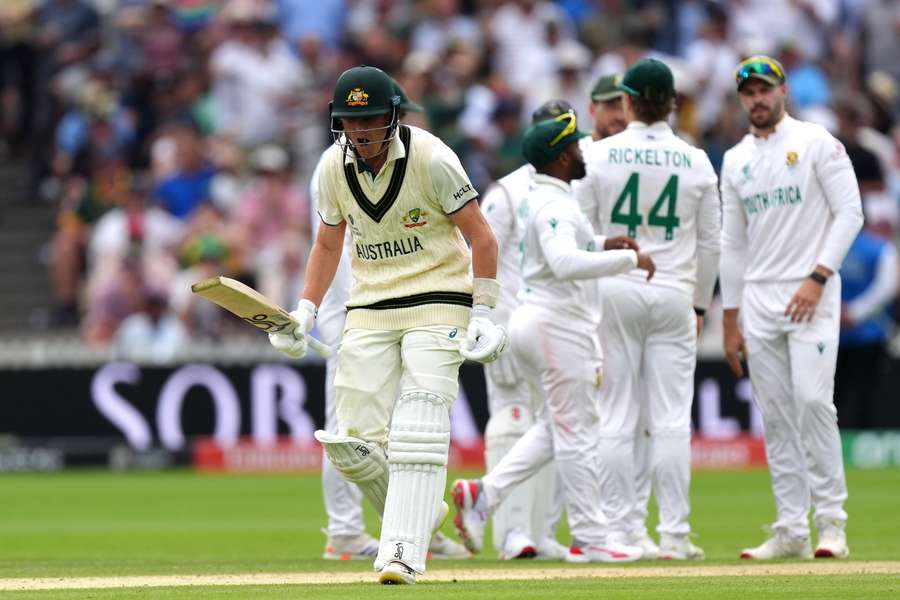
As an opener, though, it’s hard to imagine the selectors trying him again for the start of the Ashes, unless he were to move up the order for Queensland and pile on runs in the first few rounds of the Shield.
Nathan McSweeney
Another non-specialist opener that has been tried in the role is 26-year-old Nathan McSweeney. A player who is rated and respected, McSweeney found himself opening against India last year, having not performed the role in first-class cricket aside from in one warm-up match for Australia A.
Struggling to score and being dominated by Jasprit Bumrah, he was discarded for Konstas for the MCG Test. His three-match stint in the side was a tough task, for which he received some plaudits, but he nevertheless looked out of his depth.
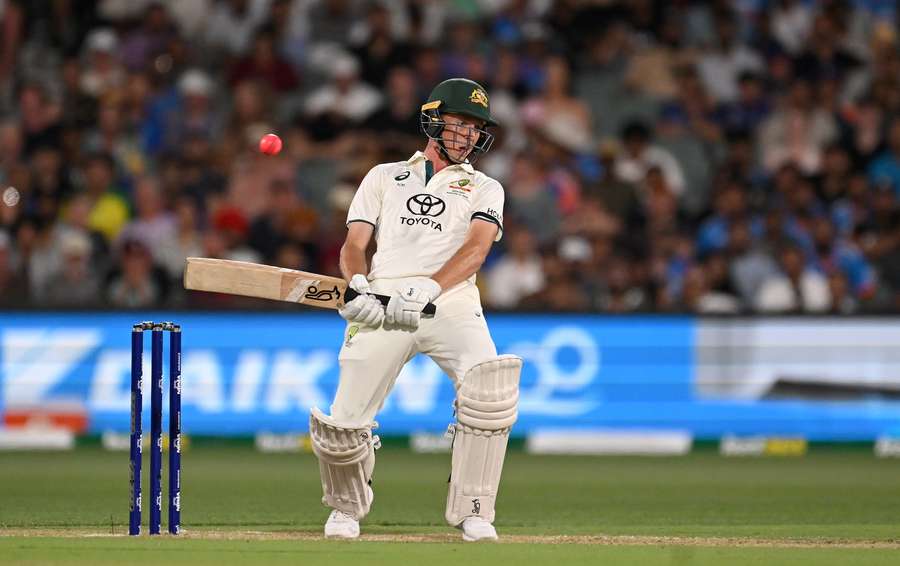
Like Labuschagne, it’s similarly hard to imagine the selectors turning to McSweeney again as an opener, given the experiment didn't work last summer. Having said that, it’s also hard to imagine him not forcing his way into the side eventually.
Most likely, McSweeney’s future will be in Australia's middle order and, having captained Australia A in the past, he's a player earmarked for an important future. In the recently completed Australia A match against Sri Lanka A, he top-scored with 94, batting at number three.
Emerging names
Jake Weatherald
The top scorer in the Sheffield Shield last season, Jake Weatherald, is an uncapped late bloomer who has found career-best form in recent times. His 906 runs at 50 for Tasmania last season were very compelling, and enough to see him picked in the ongoing Australia A series as an opener. Clearly, he’s on the selectors' radar.
While less glamorous than unearthing a generational talent, at 30, Weatherald still has his best years well ahead of him. Furthermore, he's a left-handed option (something that might come in handy once Khawaja retires) and his strike rate of 68 in last season's Shield suggests he's capable of scoring freely, something Australia is sorely lacking at the top.
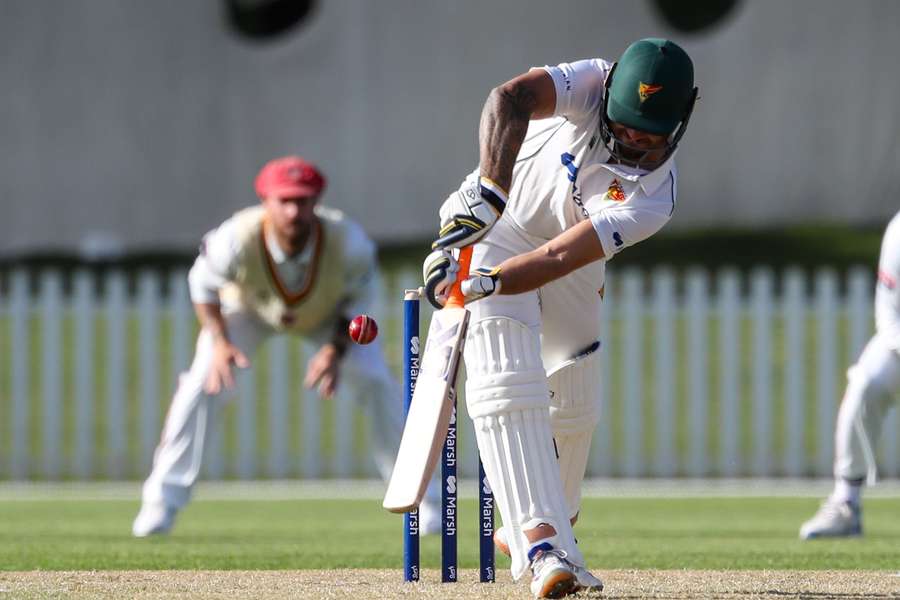
In the past, the team has benefited from more senior players coming into the side (see Chris Rogers, Mike Hussey and Simon Katich), and Weatherald's Tasmania teammate, Beau Webster, is another great example of a strong Shield record translating into the Test arena seamlessly.
Campbell Kellaway
Weatherald's opening partner in the ongoing Aussie A series in the Northern Territory is 22-year-old Victorian Campbell Kellaway. After Weatherlad, Kellaway was the next highest scoring specialist opener in the Shield last season, getting 738 runs at 43.
One for the future, it’s hard to see Kellaway jumping the queue ahead of the Weatherald, but if the A series is any barometer for where the selectors' minds are at, he’s considered the next best opener available, following the 30-year-old from Darwin.
Another left-hander, Kellaway, ended the last Shield season with his highest first-class score (165*) - just his second ton - and if he can post more totals like that when the domestic season returns, there's no reason he won't come into the equation for the beginning of the Ashes, or during it.
Dropped but not forgotten
Matt Renshaw
Matt Renshaw has come into the Test side more than once already, first as a 20-year-old opener back in 2016, then later as a middle-order player, before reestablishing himself as a top-order option in State cricket.
Clearly talented, as his 184 best Test score demonstrates, the English-born Queenslander just never quite scored the weight of runs to nail down a spot. He was overlooked in early 2024 when Australia were first searching for a new opener, despite being in the Test squad. At that time, Steve Smith was moved up the order to accommodate Cameron Green at four.
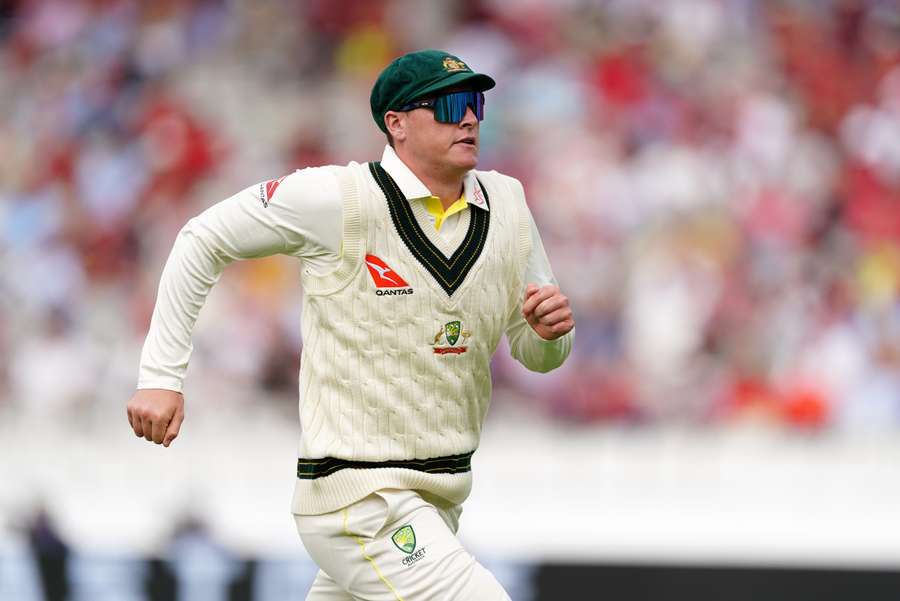
Most pertinently, Renshaw was not selected in the Aussie A four-day matches against Sri Lanka, just the 50-over ones (where he captained the side). He is in the reckoning for selection, but perhaps not for the red-ball side at the moment.
Marcus Harris
Widely considered one of the more unlucky batters of his generation, Marcus Harris long seemed nailed on to take an opening slot back when David Warner was in the latter stages of his career. The selectors, despite picking him as a reserve batter for the 2023 Ashes, opted against giving him another crack at the job when the slot opened up.
This year, he has dropped himself down the order in County cricket (batting at four for Lancashire in Division Two). Perhaps that was him accepting the fact that he won’t force his way into the side, or rather, acknowledging that specialist openers aren’t valued as highly as they used to be by the decision makers.
Harris is not out of the picture entirely, and a strong start to the Shield season could bring him into the conversation. In the ongoing County season, he's scored three centuries already and over 800 runs, but the fact that he failed to score one ton in his 26 Test innings means he has to mount an irrefutable case for reselection.
Cameron Bancroft
Cameron Bancroft’s career has been forever tainted by his involvement in the infamous ball-tampering scandal in 2018 that saw him banned from national selection for nine months. However, he did get another chance in the side in 2019, but hasn’t been picked again since. Close to 33 years old now, Bancroft played 10 Tests and never reached triple figures.
The season before last in the Shield, he made over 700 runs and seemed to be knocking the door down once again when the retirement of Warner was front and centre. However, just like Harris and Renshaw, Bancroft was also overlooked when the need for a new specialist opener seemed most obvious.
Like the two above, Bancroft could force his case with bulk runs before the Ashes, but one suspects he has been moved on from for good. A poor 2024/25 Shield season was particularly damaging to his cause, but he’s been captaining Gloucestershire (Div. Two) this season and has 701 runs already at 50.
Kurtis Patterson
Another player who has already appeared in the team (and does have a Test ton) is 32-year-old Sydneysider Kurtis Patterson. Not an opener by trade but a first-drop who could open, Patterson was reborn in the Shield last season, scoring 743 runs at 57, after being dropped from the New South Wales side in the previous campaign.
Not exactly one for the future, but perhaps one for the present, if Patterson continues his fine form in the early rounds of the Shield, he might just come into the equation for an opening berth. They’ve tried plenty of non-specialist options now, so who’s to say Patterson is out of the conversation?
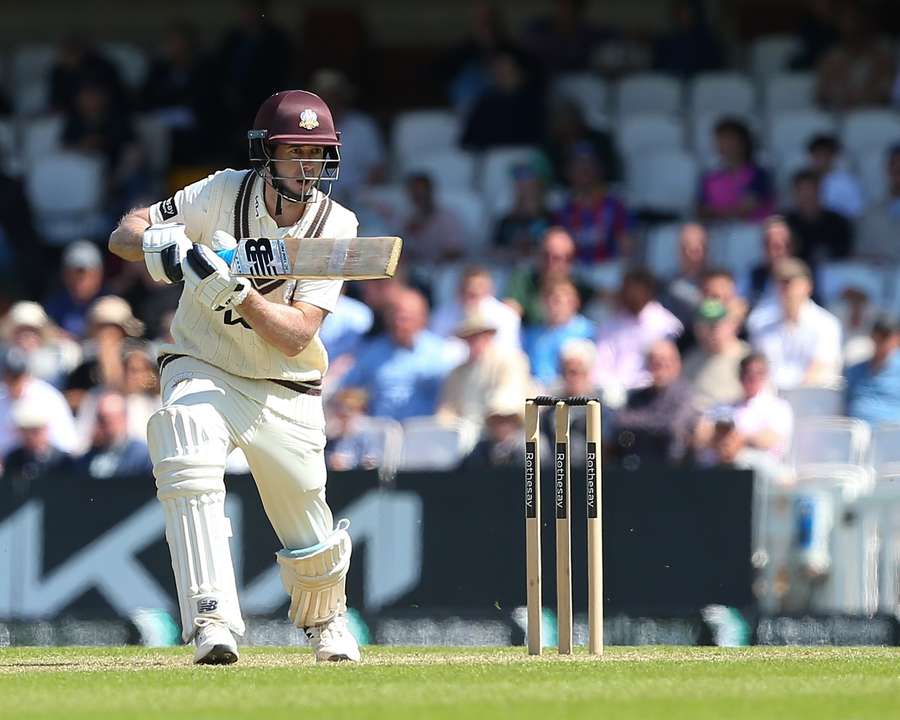
In May, Patterson signed for County Div. One table-toppers, Surrey, on a short-term deal, impressing for the Oval-based side with two half-centuries. Before that, he notched a hundred for Australia A against the England Lions. Currently, he’s involved with the A side again, batting at number four behind Weatherald, Kellaway and McSweeney, indicating the selectors have him in mind, but possibly in that order.
Outside options
Another Aussie on the County scene is Caleb Jewell. The Tasmanian left-hander operated in the middle order in last season’s Shield, but he’s moved up to opening for Derbyshire; his 821 runs at 55 are eye-catching numbers.
Western Australia’s Jayden Goodwin is also on the periphery of the conversation and was called into the A side for the aforementioned Lions match in January, as was Tasmania's Tim Ward - they opened together.
South Australia's Jason Sangha is another middle-order player knocking on the door. His hefty output in the second half of the Shield season was impossible to ignore, and he was rewarded by being asked to captain Australia A in the current series. One to watch.
In the background of all this is also Josh Inglis. He has been in the Test squad as the spare bat for some time now and showed his quality when he scored a ton on debut in Sri Lanka. The wicket-keeper/batter has not opened in red-ball cricket at all, though, so it’s unlikely he will be tried as an opener - but crazier things have happened.
There’s also the option of rejigging the order to move Head up top, as has been done in the subcontinent. However, the selectors and Head have been clear that was a conditions-specific decision. As Australia’s most destructive batter, moving him feels risky and perhaps wasteful of his talent. The same could be said of shifting Smith back to the top - that was tried and probably won't be tried again.
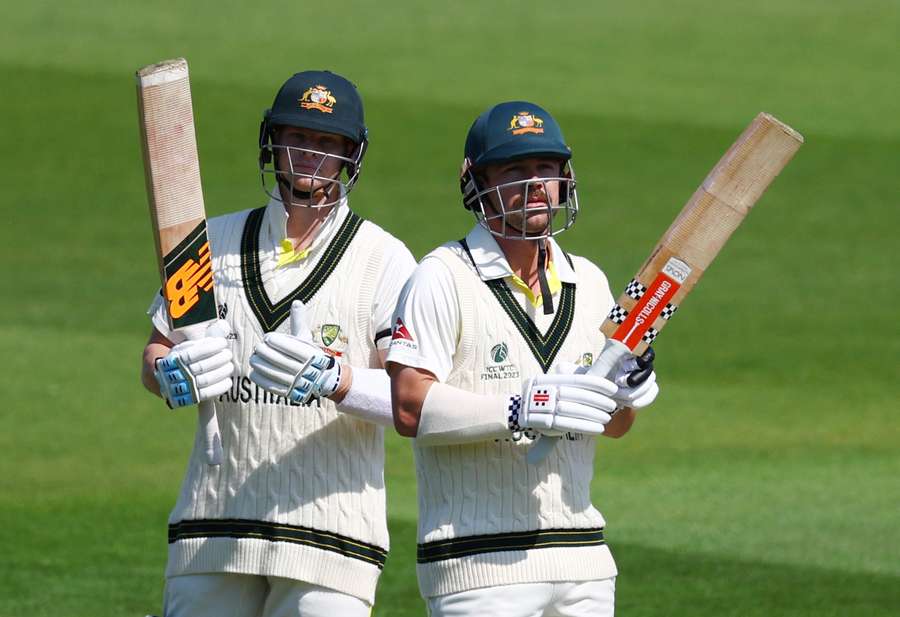
And let’s not forget Mitch Marsh... the white-ball stalwart and limited-overs opener was dropped during the home India series in favour of Webster, who offers far more with the ball these days. But why not explore Marsh as a specialist batter, even to open? Well, it would need to be seen to be believed (ideally, in the Shield), and perhaps Marsh has already come to terms with his red-ball career being behind him, but it's a fun idea at least.
The fact that there are 10 key names (plus some others) to consider is both good and bad news for Australia. It’s always encouraging to have options, but that not one single person screams out as the obvious candidate is also indicative of the lack of world-class quality in the position at present.
It looks like it’s going to come down to three or four key names auditioning for the role when the Shield gets going in early October. Bring on the bat-off, I say!
Australia A have one more four-day clash against Sri Lanka A (starting July 20th) before playing two four-day matches against India A (in India) in September. The Sheffield Shield gets going in the first week of October, with four full rounds scheduled before the Ashes begins.


